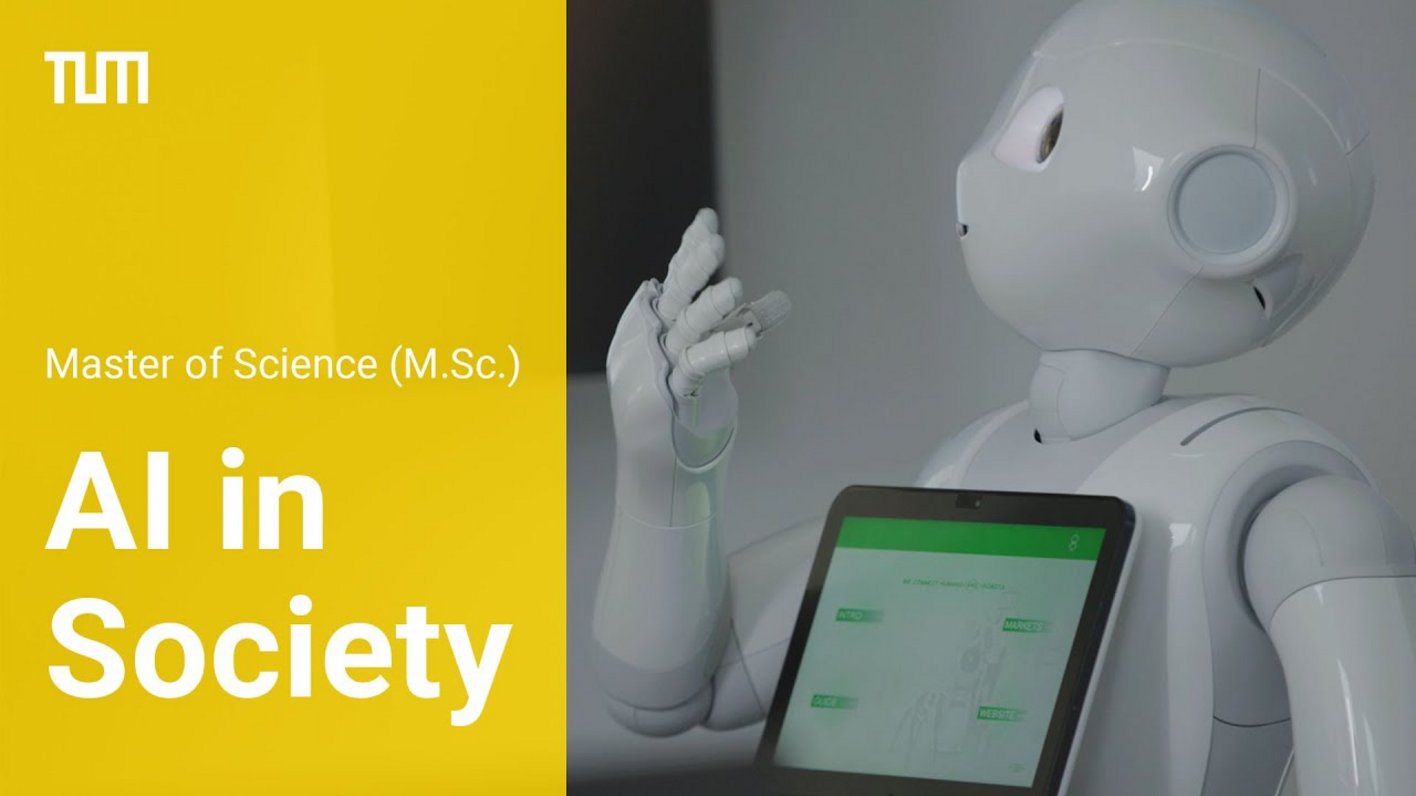Master’s Program AI in Society
For a responsible use of Artificial Intelligence in Society
Objective
As Artificial Intelligence continues its rapid evolution, its integration into many aspects of our lives presents numerous challenges spanning technological, economic, and political spheres: matters of fairness, explainability, privacy and security, among others, present significant matters of concern for companies working with these technologies. This calls for trained professionals with technical skills and interdisciplinary knowledge, who are well equipped to provide valuable guidance and navigate critical decisions.
Program Overview
“AI in Society” is a highly interdisciplinary study program, focusing on mitigating biases in AI, enhancing user-dependent explainability and interpretability, as well as ensuring data privacy and security. It also emphasizes the importance of equitable access to AI technologies and fostering a competitive AI ecosystem. By exposing students to legal, ethical, and policy aspects of Artificial Intelligence, the program prepares them to shape regulations and governance frameworks, assess potential risks, and contribute to responsible, ethical, and inclusive AI applications. Especially the current developments in AI (e.g., in the realm of generative AI for generating texts, speech, images, and videos) call for an interdisciplinary oversight supported by social scientists who understand the workings, limitations, and potential impact of such AI solutions.
What’s next?
The intended role of graduates from the MSc program "AI in Society" is to serve as AI ethicists, consultants, researchers, or product managers in various fields, as well as AI policy advisors in public administration. Their job is to ensure the responsible development and implementation of AI technologies, analyze their potential societal impacts, and promote ethical AI practices in both private and public sectors. Graduates will contribute to the design, evaluation, and governance of AI systems that prioritize fairness, transparency, and social good, while fostering innovation and inclusivity across diverse domains.
The role of the graduates is not to primarily work in the field of AI development, as that is typically done by graduates with a pure computer science background. Instead, these graduates, equipped with a profound understanding of AI, take on intermediary or interface functions between the technical and social science aspects of AI applications.
Admission requirements
• a qualified bachelor’s degree of at least 6 semesters obtained at a domestic or foreign university
• adequate knowledge of the English language
• at least 5 credits worth of modules from mathematics or statistics passed during the bachelor’s studies
• a practical project worth at least 18 credits completed during the bachelor’s studies (more information here)
• passing of the aptitude test
A comprehensive list of the required application documents can be found here.
Brief Profile of the Course
Period to complete study program:
4 semesters (full-time)
Credits: 120 ECTS
Degree: Master of Science (M.Sc.)
Start of study program: winter semester only
Language of instruction: English
Apply now
The application takes place via the application portal of the Technical University of Munich.
The application period is January 1 to May 31. More information about requirements and application details can be found here.
News
We are happy to share that AI in Society has been mentioned in the Süddeutsche Zeitung (German newspaper)! See an excerpt of the article here.
Advisory Board
Industry

Dr. Corina Apachite
Continental AG
Head Artificial Intelligence and Data

Dr. Zoya Bylinskii
Adobe Research Inc.
Head of Creative Intelligence Lab

Sarah Engel
Capgemini
Director for AI

Dr. Thomas Gottron
European Central Bank
Data Office

Dr. Tobias Große-Puppendahl
Porsche AG
Principal Enterprise Architect Data & AI
Academia

Prof. Eirini Ntoutsi
Uni-BW
Bias and Fairness in AI Applications

Prof. Sonja Utz
Leibniz Institute for Knowledge Media
(Computational) Social Sciences

Prof. Barbara Plank
LMU Munich
Chair for AI and Computational Linguistics
